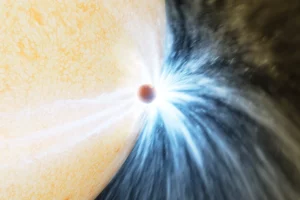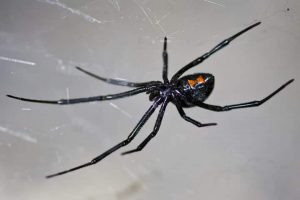Effects of change in climate are being manifested all around the globe and in one of the latest instances it has been found that every baby sea turtle in Florida is a female. As per a report in sciencealert.com, a turtle hospital in this US State has reported that all the marine turtles they have checked in the last four years, have all been female.
Scientists feel that this is a dismaying development which can be linked to climate change.
The sex of these reptiles is guided by the temperature of the sand in which the eggs are buried. The male gender among these creatures is already in small numbers, for every 10 females there is one male and with the sand becoming hotter over time the number of males is sure to drop.
Even though scientists are not in agreement as to how this will affect the survival of these creatures, they are united about the fact that change in climate is impacting these endangered species.
Talking about this to Insider, Lucy Hawkes who is an ecologist at the University of Exeter said: "There are seven species of sea turtles, and all of them produce more females as it gets warmer. All of them have strongly female biased sex ratios.”
Hawkes has been studying the skewed sex ratio since 2007.
The US National Oceanic and Atmospheric Administration states that when the eggs of sea turtles are incubated in sand which has a temperature of more than 31 degrees Celsius, then a female will hatch.
Sharing details about past four summers, Bettle Zirkelbach, said they have been the hottest on record. Zirkelbach is the manager of the Turtle Hospital in Florida Keys’ Marathon city said: “Scientists that are studying sea turtle hatchlings and eggs have found no boy sea turtles, so only female sea turtles for the past four years.”
Florida is no exception as this occurrence has been noticed all over the world. In a study done in 2018, it was observed that 99 per cent of turtles in Eastern Australia were females.
On how this would influence the population of sea turtles, experts hold varied views.
Speaking to the Washington Post in 2018, biologist David Owens, Professor emeritus at the College of Charleston said that within a few decades to a century, “there will not be enough males in sea turtle populations."
This would automatically cause unsustainably poor genetic diversity, observed Melissa Rosales Rodriguez, who is a sea turtle keeper at the Miami Zoo.
Hawkes feels that it will be much more complex and complicated than this. As to what is the “optimal” gender balance that is needed is not clear but generally it has been found that in sea turtle nests 90 per cent of females hatch from the eggs. It has also been found that the number of males needed to fertilise the eggs is small.
Based on this, Hawkes averred that "having lots of females could be an evolutionary adaptation to increase the population from being endangered.”
Some other studies have also pointed out that even a hot nest could produce males provided the eggs are wet. "If you ran out of all males, it would threaten the population – but we don't think that's going to happen too soon," Hawkes remarked.
Aside from this phenomenon, climate change has serious repercussions on the sea turtles. With more storms taking place, thousands of incubated nests are lost in one go while with the level of the sea rising, nests are flooded which wipe out the eggs.
Worried about this Hawkes suggests: "The biggest thing we can do in this regard is limit development of nesting beaches, so reduce the number of new hotels, etc. being built behind the beach.”
Also read: Do sea turtles navigate for hundreds of kilometres by sensing the planet's magnetic field?




















